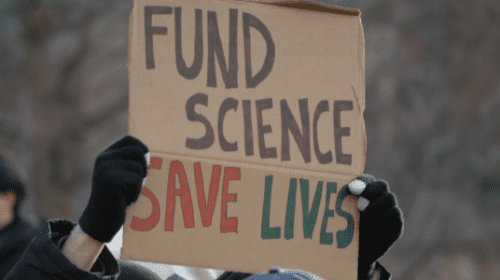Often called “a family disease,” addiction affects the struggling individual and those around them.
Whether it be arguments, negative feelings of the past, financial disputes, or legal issues, addiction can create a ripple effect that touches every family member on the way.
However, individuals struggling with addiction and their families can find healing and live fulfilling lives in long-term recovery through family therapy and by doing ongoing self-work.
Why is Addiction Considered a Family Disease?
Many people think of addiction as an individual problem, but the reality is that it can and usually does impact the entire family unit. Although many families experience similar events, their experience with addiction is unique.
The person struggling with addiction may exhibit behaviors that cause issues inside the family. And dealing with addiction can be especially difficult for loved ones who may feel helpless or unsure of how to support their struggling family member.
Our families represent a significant aspect of our immediate environment, as our interactions with them constantly shape us. Our decisions and actions can also directly impact them, positively or negatively.
The debate surrounding the relative impact of nature versus nurture on human development is a common topic of discussion, as it explores the extent to which hereditary and environmental factors influence human behavior. Most psychologists recognize that both play a role in shaping our lives, and this can depend on the individual.
Is Addiction Hereditary?
Addiction is a complex issue and has various contributing factors. Having a parent with addiction doesn’t necessarily mean the child will struggle with it. However, your risk of developing a drug addiction is higher if you have a blood relative with alcohol or drug addiction.¹
According to Mayo Clinic, once an individual begins using drugs, addiction development may be influenced by genetic traits inherited from their biological parents. This may, in turn, affect the speed at which the disease progresses.
Children of parents with SUD are at an increased risk of developing one, too.² But there are other family-related risk factors to consider:
- Being exposed to substance use at a young age
- Parents or caregivers struggling with substance abuse
- Lack of family involvement, bonds, or supervision
In addition, specific factors may influence the probability and rate of developing an addiction::
- Drug use at an early age impacts brain development
- Young people are susceptible to peer pressure
- Using highly addictive drugs can accelerate addiction development
- Less-addicting drugs may serve as a starting point
Addiction and the Family
Each family has a unique experience with addiction, and it can take a physical, emotional, and financial toll on families. It can cause old issues to surface, evoke trauma, and even tear relationships apart.
Changes in family dynamics
Family members may take on different roles in response to their loved one’s addiction. These roles are commonly referred to as the “family roles in addiction” and include the enabler, the hero, the scapegoat, the lost child, and the mascot.
Addiction also impacts the family’s ability to communicate and problem-solve properly. The person struggling with addiction may become withdrawn or secretive, which can cause a heavy strain on their relationship with other family members.
Guilt and shame are typical feelings for the person who is addicted, and their family members may struggle to regain trust or feel resentful for past behaviors. Addiction can have long-lasting effects on families, even after the individual begins their recovery journey and through long-term sobriety.
Financial strain
The costs of supporting a family member who has an addiction can cause strain on the family’s finances. While the financial impact of addiction can vary from family to family, there are several common ways in which it can affect finances:
- Legal fees
- Medical bills
- Living expenses
- Paying for treatment
- Paying for drugs or alcohol
The financial burden for families of individuals struggling with addiction can result in strained relationships with feelings of resentment, betrayal, and mistrust. As a result, family members may have difficulty managing their emotions and struggle with their mental health.
Codependency
Family members can enable their loved one’s addiction in various ways. Attempts to support their loved one or control the situation can lead to shame, isolation, and psychological distress.
Some examples of codependent behavior are
- Financial support
- Tolerating abuse
- People-pleasing
- Obsessive involvement
- Difficulties with intimacy
- Minimizing personal needs
- Exaggerated caretaking behaviors
It can be extremely challenging to break the cycle of codependency. Family members may need support and guidance to break the cycle of enabling and ensuring proper healing for themselves and their loved ones.
Setting boundaries, learning to say no, and focusing on self-growth are a few appropriate first steps. It’s not an overnight process, but receiving support and guidance from trained professionals is helpful.
Family-intensive therapy, like the program provided at Recovery Unplugged, can be beneficial for people dealing with addiction and their family members. Through these programs, families learn to adjust their focus, reconnect, and change their habits through therapy.
Staying in the present moment and moving forward is essential. In addition to addiction treatment, having their loved ones’ support can help an individual recover and promote healing for the entire family.
Family Involvement in Addiction Treatment
Families can benefit from seeking professional support and utilizing resources to cope with their loved one’s substance use struggles.
You might think of popular support groups like Al-Anon and Nar-Anon, but those are not the only options. There are various online and in-person groups that support families, as well as programming at recovery centers and family therapy.
Benefits of family therapy
Participating in family therapy is an excellent way for families of individuals struggling with addiction to enhance their relationships, foster healing, and establish a solid groundwork for the future.
Here are more benefits of family therapy:
- Help families learn about addiction and its impact on their family as a whole
- Help family members understand the individual, reducing feelings of guilt and shame.
- Help process family conflicts and complicated emotions
- Work through issues that may have driven them apart or led to addiction
- Heal relationships and improve family communication
- Improve family dynamics when individuals begin their life in recovery
- Increase accountability for the individual
- Teach and promote healthy boundaries between family members
- Build a support system for individuals after treatment
- Increase the likelihood of long-term recovery
- Teach coping skills and other self-care practices
- Help family members navigate their mental health
Family-Intensive Services
At Recovery Unplugged, family plays a vital role in an individual’s treatment success. We encourage individuals in treatment to consider rebuilding broken family relationships and reconnecting with their families. Our family-intensive therapy program is an excellent option for families looking for support.
How it works
Your loved one does not need to be in a treatment program at Recovery Unplugged for you to start family-intensive therapy with us. Family involvement can improve treatment outcomes and increase the chances that your loved one will begin treatment.³
No family is alike, so we offer multiple program offerings for families to choose from:
Family Sessions
During these 60-minute sessions, your family will work with a trained therapist to examine your problem-solving and communication abilities. Your family will get guidance to work through friction surrounding your loved one’s addiction.
Level 1 Family Intensive
This 3-hour session is more intense than our regular family session. Expect an immersive therapy experience to examine your family’s dynamics. Our experienced therapists use experiential techniques and education to address past conflict or pain. In addition, we’ll assist your family to improve communication skills and uncover resolutions.
Level 2 Family Intensive
Our third option is a 6-hour immersive family therapy session. This session will handle more complex family issues requiring more intense professional care. During this experience, your family will address family system dynamics, address past issues, and a trained professional will help your family find resolutions to move forward.
For more information
If your family wants to learn more or begin family therapy at Recovery Unplugged, call 1 (855) 952-1194 today. Our team of experienced admissions staff is available around the clock every day of the year. Let us help you get started.
Remember, addiction is not just about the individual struggling; it’s a family matter too. And getting involved in the treatment process can help your loved one continue on the path to recovery.
Resources for Families
SAMHSA – Resources for Families Coping with Mental and Substance Use Disorders
Living With Your Child’s Addiction Podcast

























